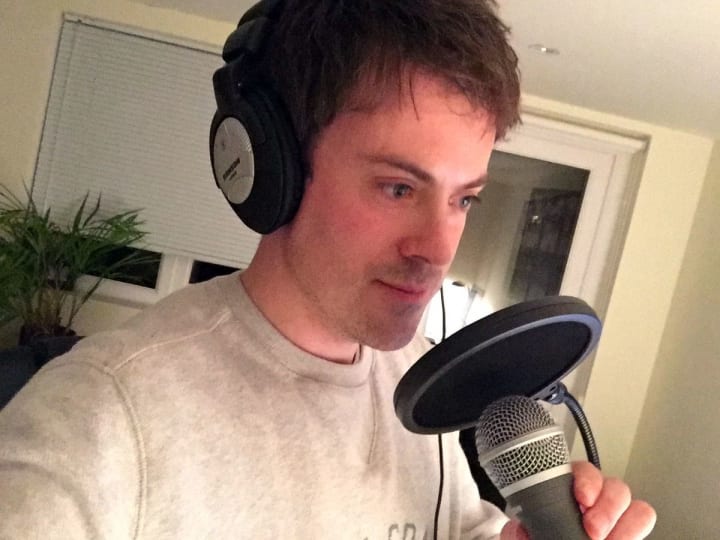Best Mental Health Experts To Follow On Twitter
In the face of so much social media noise, these mental health professionals take to Twitter to make our digital world just a little bit saner.

The social media universe is the place we go to vent, discuss, collaborate, shop, learn, watch, consume, and waste time. For all the gratuitous chatter and trivialities, social platforms are a hotbed of advice, counseling and insight that you can take with you when you log off; you need only know where to look. One of the most productive applications of Twitter, and other online communities, is in the value it offers to individuals who are struggling with personal, difficult mental health disorders; even if they do not feel comfortable sharing their experience, they can find someone who is struggling with something similar or who can give them scientific insight into why their mental health state and emotions are what they are. In these digitally savvy mental health experts we see social media at its finest.
Dr. Keely Kolmes

The influence of the internet and social media on our daily lives has long since been inducted into the cultural zeitgeist. With social sharing growing ever the more convenient and easy, we are forced to decide for ourselves; what is a healthy amount of information to share with the world? How much does what we see on our newsfeed impact our psyche? The stakes at hand go beyond one's personal wellbeing; social media use often poses an ethical dilemma, too.
Digital ethics is just one of the many areas that mental health practitioner, writer and speaker Dr. Keely Kolmes tackles. Kolmes is a licensed psychologist in San Francisco, and sees clients in her private practice in addition to her extensive involvement in protecting the integrity of the mental health field and the privacy of every patient. One such example is the course she teaches on Digital Ethics, geared toward colleagues and industry professionals. Her curriculum covers everything from the virtue of clinicians being active on social media and dispersing knowledge, to how to navigate the many sticky situations that can arise in the process, including friend requests from patients' and issues of confidentiality. In a world where everyone has a voice and an opinion, it's refreshing to see a professional like Dr. Kolmes using her social media powers for good, simultaneously lauding its benefits and warning against its pitfalls.
Learn more about Dr. Kolmes and follow her on Twitter at @drkkolmes.
Natasha Tracy

To be well-versed in bipolar disorder and research in itself makes you a valuable addition to the mental health community, but having that intricate knowledge plus the personal experience to understand the symptoms is what makes Natasha Tracy such a trusted voice in her field. Tracy has been struggling with bipolar disorder since age 20, and launched her first online blog Bipolar Burble as a channel to share and chronicle her experience. Years later she began writing professionally and her experience with a mental health disorder became a career in mental health.
Her book Lost Marbles: Insights into My Life with Depression and Bipolar offers insight into what Bipolar disorder is really like on a day-to-day basis while offering applicable, implementable strategies from someone who knows exactly what it's like. Her Twitter feed keeps her followers informed on the latest new research, mental health articles and nuggets of wisdom.
Learn more about Natasha Tracy and follow her on Twitter at @natasha_tracy
Dr. Christian Jarrett

A cognitive neuroscientist by training, Dr. Christian Jarrett has gained entry into the pop-sci elite. His career is centered entirely on exposing the mysteries of the human mind, and dispelling long-held myths about how we interpret and interact with the world and the people around us. To that end, Wired magazine hailed his 2014 book, Great Myths of the Brain, as one of the best of the year, with his other books receiving similarly high praise.
The book, and really Jarrett's entire body of work, has an element of humor, fun and childlike curiosity (there's a section about defunct myths throughout history, such as that 'The Brain Pumps Animal Spirits Round the Body') while also paying proper attention to issues pertinent to mental health patients and professionals today; his book also challenges and clarifies common beliefs about brain disorders and illness, like the myth of 'The Chemical Imbalance Myth of Mental Illness.' Dr. Jarrett prods his readers to be mindful of their strengths and their weakness, making us all more stable, content and fulfilled.
Learn more about Christian Jarrett and follow him on Twitter at @Psych_Writer.
Dr. Marsha

Psychologist and neuropsychologist Marsha Lucas–or as she's known, Dr. Marsha–approaches her work with the overarching goal of optimizing her patients' emotional state and overall well-being than she is in isolating a specific diagnosis for the sake of quashing that one thing. In other words, she sees her role as therapist and writer as being to help people master skills like emotional resilience, self-understanding, and interpersonal relationships. She hails mindfulness training as the panacea method to improve every aspect of one's life; even further, implementing these skills will rewire the brain on a structural level for long-term emotional and physical health benefit. As a mental health expert, Dr. Marsha works with patients in one-on-one psychotherapy sessions, but she extends her mindfulness magic to the masses with her writing; her 2012 book Rewire Your Brain For Love focused on using mindfulness to identify, understand, and ultimately improve one's patterns of behavior in relationships.
Learn more about Dr. Marsha and follow her on Twitter at @DrMarsha
Susan K. Whitbourne

In a social media landscape flooded with fake news and inaccuracies, it's crucial that we're mindful of the source of the information we expose ourselves to. In this way, Dr. Susan K. Whitbourne is the antidote to the misinformative dark side inherent in social sharing. As a Psychological and Brain Sciences professor at UMass Amherst and a longtime contributing writer to well-regarded publications, it's safe to say that Whitbourne's intentions are pure; she promotes her own work and that of others not to serve herself, rather only to promote the wellbeing and education of her audience. As a mental health researcher and writer, Whitbourne explores how our social environments influence our innate personality and natural tendencies, discussing topics such as the root cause of anxiety and how to cope with life's hurdles.
Learn more about Susan K. Whitbourne and follow her on Twitter at @swhitbo
Dr. Carole Lieberman

Dr. Carole Lieberman launched her career out of sheer necessity; nicknamed The Terrorist Therapist, it was after 9/11 that she identified an emerging demographic whose psychological needs had not yet been filled. In a world where terrorism, fear, and constant vigilance are the norm, Dr. Carole focused her psychiatric efforts specifically on helping families and children cope with fear and anxiety about our unpredictable world. In addition to her mental health clinical work, she is a three-time Emmy honoree for her countless media and television appearances and a best-selling author to boot. Quite simply, Lieberman has the ideal combination of mental health expertise and an extremely keen sense of the human condition and ever-changing cultural zeitgeist.
Learn more about Dr. Carole and follow her on Twitter at @DrCaroleMD
Dr. Paul Summergrad

If you haven't heard of Paul Summergrad, surely you've heard of the organization he formerly presided over as president, the American Psychiatric Organization. With no shortage of research, resources, and expertise at his disposal, it's fair to assume that if Summergrad posts it, it's certifiably relevant to the mental health world both inside and out of APA happenings. He has published a plethora of research documenting the history and development of psychiatry, medical psychiatry, mood disorders, the design of healthcare systems and more.
Learn more about Paul Summergrad and follow him on Twitter at @paulsummergrad
Therese Borchard

For many people with treatment-resistant depression, Therese Borchard is the picture of hope. She founded Project Hope & Beyond, which is an online community for a group of people with chronic mood disorders to communicate, less to commiserate and more to collaborate and inspire one another. Borchard's blog "Beyond Blue" has earned her a spot at the 'top mental health bloggers' list by numerous publications over the years. Though she's a mental health activist and depression writer, Therese Borchard aims only to educate and empower.
Learn more about Therese Borchard and follow her on Twitter at @thereseborchard
About the Creator
David McCleary
Holistic health practitioner. Believes in using natural remedies over traditional medications whenever possible. Volunteers at a recycling plant.






Comments
There are no comments for this story
Be the first to respond and start the conversation.